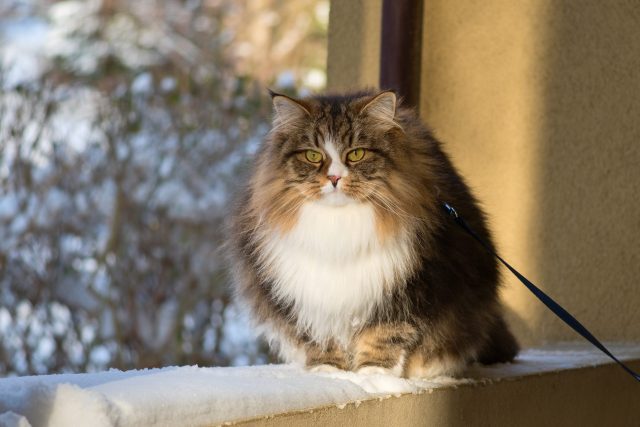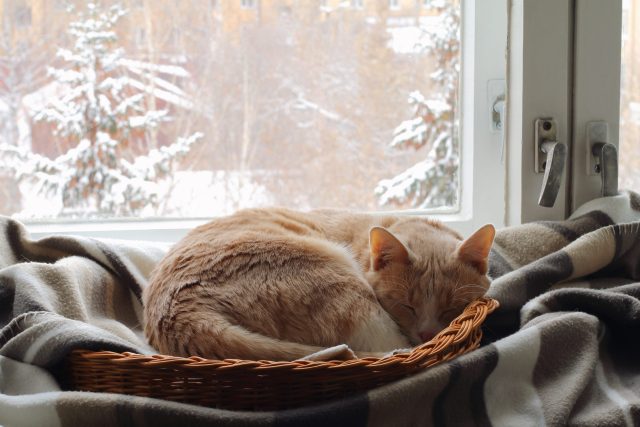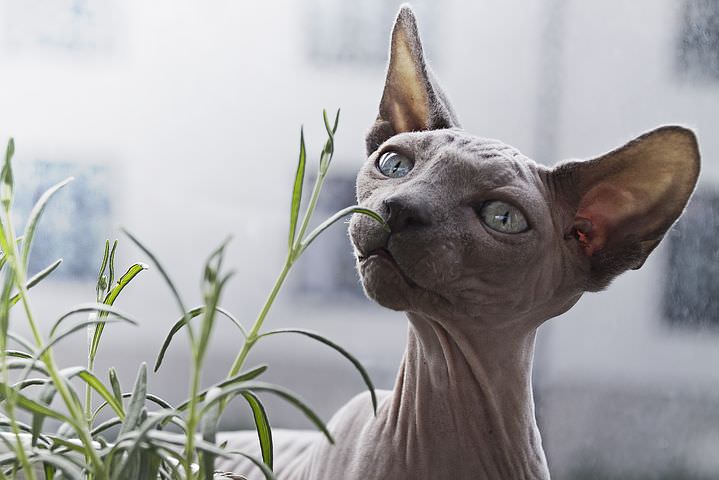Let Dr. Kathryn Primm, DVM, tell you why your cat’s shedding seems less when the days grow short and cool. Some people notice that their cats seem to shed less hair as winter approaches. There is a good reason for this change. Hair grows in cycles and these cycles have evolved as a way to ensure the best chance for the animal’s continued survival. During certain seasons, the hair sheds less in order to retain a constant amount of insulation.
Factors That Signal Shedding Slow Down
The cool thing about the winter change is that it is not dependent on ambient temperature, as it seems it would be. Studies (done on horses) show that hair follicles can be more affected by the length of the daylight or photo-period¹. As the days grow shorter, animals’ bodies instinctively know that winter is approaching, and they need a thicker coat that stays put to insulate them.
So if the actual temperature does not tell your cat that he needs to hold onto his winter coat, how does your cat know that the days are growing shorter?
Actually, he may not consciously realize that the days are growing shorter, but his brain knows. There is a small gland in the brain that is tuned into daylight length. A non-visual portion of your cat’s lateral eye senses the light and sends the information to the brain.
This information is relayed to a small gland which turns the information into a chemical message through the production of melatonin. The gland is called the pineal gland and as the days grow shorter, the pineal gland produces melatonin for a longer duration. The melatonin causes changes in a cat’s physiology.
These changes affect more than his hair coat. In fact, science has demonstrated changes in hormone production, behavior, and immunity in response to photoperiod and proven by the fact that animals with their pineal glands removed, do not show the same changes².

Inside Cats, Too?
Companion pets are somewhat insulated from these changes by the presence of artificial light, but animals in the wild depend on their bodies, automatically adapting to the environmental change. Shorter days trigger your cat’s hair to slow shedding and improve the undercoat, which is best at insulating your cat’s body from the winter cold.
Our indoor cats can be a little fooled by the artificial light inside our homes, but most cats do experience a change in their hair cycle with the seasons. Recognize this outward sign of adaptation as the amazing miracle that it is in which nature provides for your cat without him really realizing it.
Do you love learning about cats? I love sharing about them, so find me on Facebook by clicking here.

1.Hodge, S., and D.D. Householder. 1980. Extended vs traditional day length regimens for controlling hair growth in horses. Texas A&M University, College Station, TX.
2.Walton, James C., Zachary M. Weil, and Randy J. Nelson. “Influence of Photoperiod on Hormones, Behavior, and Immune Function.” Frontiers in neuroendocrinology 32.3 (2011): 303–319. PMC. Web. 15 Feb. 2017.

